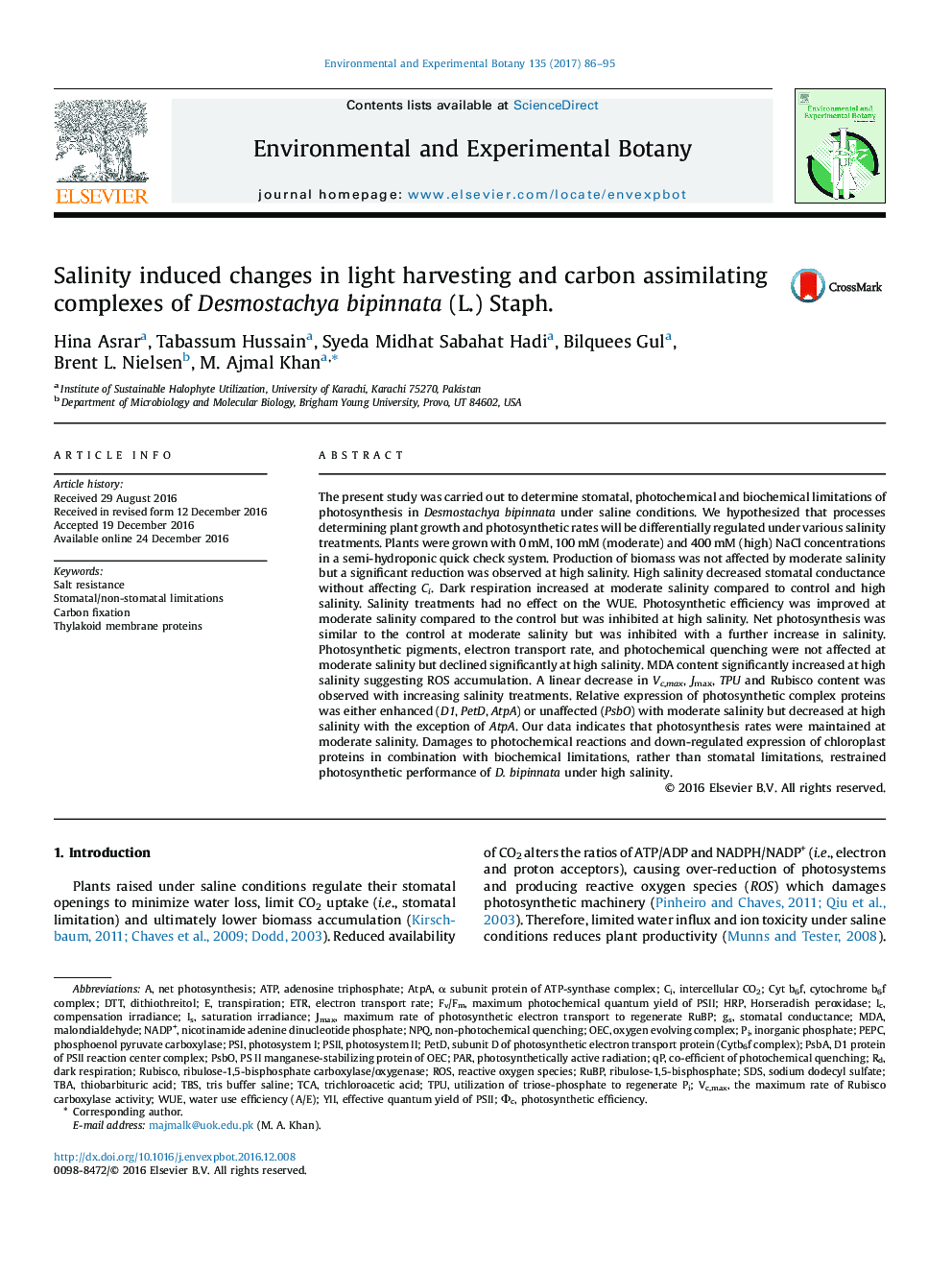| کد مقاله | کد نشریه | سال انتشار | مقاله انگلیسی | نسخه تمام متن |
|---|---|---|---|---|
| 5766690 | 1628042 | 2017 | 10 صفحه PDF | دانلود رایگان |

- Desmostachya bipinnata survived in up to 400Â mM NaCl salinity.
- Plants treated with moderate salinity accumulated biomass comparable to control plants.
- Stomatal limitation did not influence CO2 fixation rates.
- Plants shifted from light harvesting to light protecting mechanisms at high salinity.
- Biochemical and photochemical limitation inhibited photosynthesis at high salinity.
The present study was carried out to determine stomatal, photochemical and biochemical limitations of photosynthesis in Desmostachya bipinnata under saline conditions. We hypothesized that processes determining plant growth and photosynthetic rates will be differentially regulated under various salinity treatments. Plants were grown with 0Â mM, 100Â mM (moderate) and 400Â mM (high) NaCl concentrations in a semi-hydroponic quick check system. Production of biomass was not affected by moderate salinity but a significant reduction was observed at high salinity. High salinity decreased stomatal conductance without affecting Ci. Dark respiration increased at moderate salinity compared to control and high salinity. Salinity treatments had no effect on the WUE. Photosynthetic efficiency was improved at moderate salinity compared to the control but was inhibited at high salinity. Net photosynthesis was similar to the control at moderate salinity but was inhibited with a further increase in salinity. Photosynthetic pigments, electron transport rate, and photochemical quenching were not affected at moderate salinity but declined significantly at high salinity. MDA content significantly increased at high salinity suggesting ROS accumulation. A linear decrease in Vc,max, Jmax, TPU and Rubisco content was observed with increasing salinity treatments. Relative expression of photosynthetic complex proteins was either enhanced (D1, PetD, AtpA) or unaffected (PsbO) with moderate salinity but decreased at high salinity with the exception of AtpA. Our data indicates that photosynthesis rates were maintained at moderate salinity. Damages to photochemical reactions and down-regulated expression of chloroplast proteins in combination with biochemical limitations, rather than stomatal limitations, restrained photosynthetic performance of D. bipinnata under high salinity.
Journal: Environmental and Experimental Botany - Volume 135, March 2017, Pages 86-95